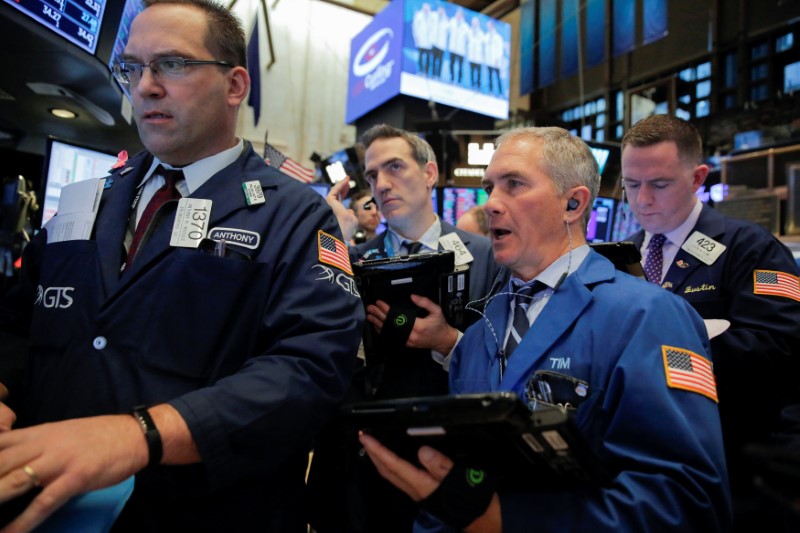Who is Kevin Hassett? Wolfe looks at the Trump ally tipped to become Fed Chair.
By Patturaja Murugaboopathy
(Reuters) - At a time when volatility in financial markets is creeping up on rising bond yields and fears of U.S trade protectionism, one modern leading indicator of trouble ahead suggests stock market losses could intensify going forward.
Cross asset correlations - the degree to which the price of a financial instrument is affected by a change in the price of another asset class - last week hit a near two-year peak, according to a Reuters analysis of weekly price returns on eight major instruments.
That still leaves the measure short of highs seen around a handful of major market collapses in the past decade: the initial peak of the Eurozone debt crisis in 2011, 2013's Federal Reserve driven "taper-tantrum" and the 2008 crash.
But since a record Feb 6. fall in the Dow Jones Industrials Index (DJI), it is heading for a 2015 peak which coincided with another slide - China's stock market crash and devaluation of the yuan, and the resulting brief selloff in stocks and emerging market assets.
(GRAPHIC: Cross-asset correlations - http://reut.rs/2FnbGGK)
"During the times of stress when assets are sold off, they are sold off together, partly owing to the fact that previously all the markets were rising together," said Vishnu Varathan, head of economics and strategy for Mizuho Bank inSingapore.
"High cross-asset correlations validate the start of a sell-off and get accentuated during the sell-off."
The era of globalisation of financial markets and investment has seen cross-asset correlations in general trend higher.
In the past decade, when banks and investors were searching for places to lodge the floods of central bank money pumped into the global economy, that meant a crowding out that prompted analysts to warn of market bubbles.
If markets also trend down together, however, it means the big blue-chip investors who have piled money into these markets will need to find places to hide as asset values fall.
"If there are no gradual corrections coming, and we do see a lot of highly correlated asset market moves, then the correction phase would also be little bit more brutal," said Mizuho's Varathan.
